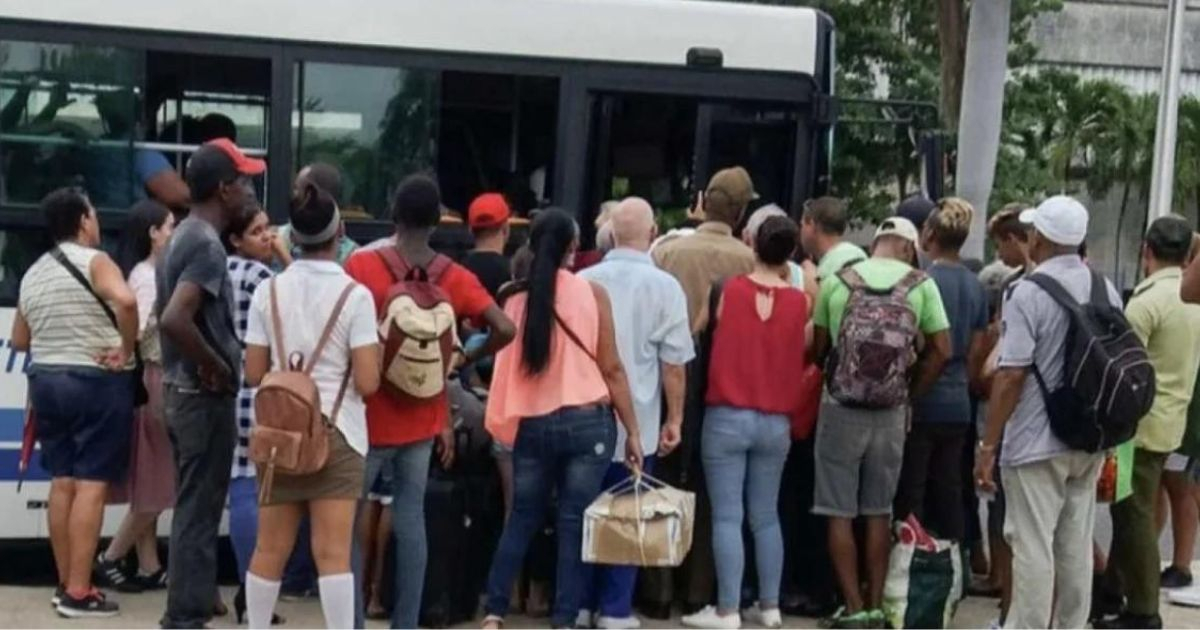
The Cuban government acknowledged the transportation crisis in the country, revealing that more than half of the provincial routes are currently stalled, as reported this Tuesday during the session of the Cuban Parliament.
Eduardo Rodríguez Dávila, the Minister of Transportation (Mitrans), stated that by the end of April, 52% of the routes of the provincial transportation companies were inactive, as reported by the official newspaper Granma.
The minister explained that, of the active provincial routes, 86% operate with only one trip in the morning and another in the afternoon.
Rodríguez acknowledged that the situation is more critical in the provinces of Camagüey, Granma, Villa Clara, Ciego de Ávila, Holguín, Matanzas, and Artemisa.
The lawmakers were also informed that the plan for 2024 anticipates 1,306 million passengers, and by April, 908 million had already been reached.
However, according to Granma, there is a trend "towards a decrease in passenger transportation in the country."
He justified this situation by citing "the deterioration of the technical availability coefficient and fuel limitations."
The parliamentarians were also informed that, according to the results of the verification conducted on the country's transit systems, Cuba received 2,268,118 packages in 2023, with the highest volume coming from Correos de Cuba, Aerovaradero, and Transcargo.
However, Ailyn Febles Estrada, the vice president of the Commission for the Attention to Services of the National Assembly of People's Power, acknowledged that there are issues with the transportation of packages.
In that regard, he acknowledged that the challenges lie in the allocation and supply of fuel, which affects the timely transport of packages from Havana to the municipalities, significantly impacting the quality of services, as reported by Granma.
Recently, the leader Miguel Díaz-Canel acknowledged the disastrous state of transportation in Cuba, but stated that it is a phenomenon tied to the global crisis.
During the YouTube program "Desde la Presidencia," which he hosts himself, the leader stated that the sector is experiencing its "worst moments in recent years."
As evidence of this, in June, images circulated on social media showing dozens of Cubans spending up to five days on the waiting list at the bus terminal in Havana.
The journalist Yosmany Mayeta posted a gallery showing several people of all ages, including young children, sleeping on the floor of the Villa Nueva Terminal in Havana.
At the other end of the route, in the city of Santiago de Cuba, the situation is not very different.
The transportation crisis in Cuba is so severe that people in this eastern city are paying up to 1,500 pesos just to place their names on a clandestine waiting list at the train terminal in order to travel.
A woman named Esther reported to the journalist Mayeta the difficulties they faced in order to leave the province.
Filed under: